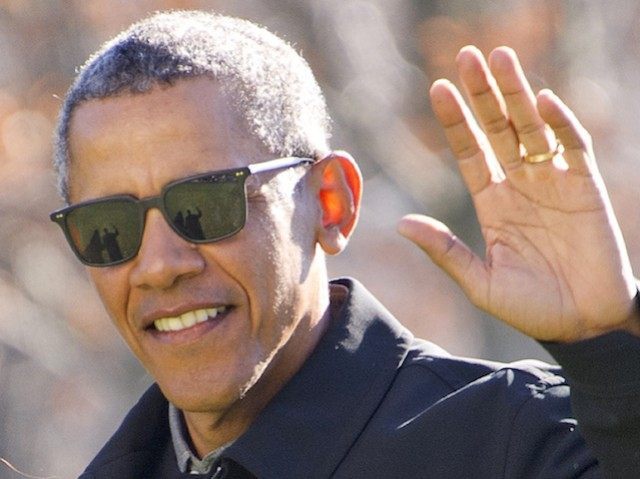The Americans had allegedly been kidnapped from a brothel located inside of a home in Baghdad’s Dora neighborhood. A State Department source reportedly told CBS News that the U.S. embassy received information about a threat the week before that an Iranian-backed Shiite militia group wanted to seize an American or an American contractor.
Officials in Washington had hoped the Iranian government would tell the militia group to hold off because of all the negotiations surrounding the prisoner swap that saw the release of five Americans. The State Department source said the fear was that one of the groups might have “gone off the reservation.”
This new information has emerged in the midst of a new report published in the New York Times that provides details into the tumultuous 14-months long, secretive negotiation process leading up to Saturday’s lopsided exchange swap.
Information in the Times piece indicates that nearly every bump in the road to finality was a direct result of the Iranian regime’s demands for more than was already on the table, echoing to how Iran negotiated the nuclear deal. And while the Iranians were grappling with a highly-divisive internal dynamic where the regime’s moderates were up against hardliners who stand opposed to the deal, the Obama administration was dealing with its own internal debate about which prisoners–if any–the United States should trade.
Despite objections by Attorney General Loretta E. Lynch to comply with any sort of deal that would result in swapping innocent Americans seized for political gain with Iranian criminals who were either indicted or convicted under Western law, the Times reports that President Obama decided on a so-called “one-time gesture.” As such, he resolved that “Iranians who had been accused or convicted of violating sanctions that he was lifting anyway as part of the nuclear agreement” would be swapped for the five Americans who were likely innocent.
Ultimately the White House swapped one Iranian and six Iranian-Americans who were either charged or convicted of violating sanctions in exchange for the five Iranian-Americans that were being held in Iran unjustly. Those in the exchange included Washington Post reporter Jason Rezaian, former U.S. Marine Amir Hekmati, Christian clergyman Saeed Abedini, businessman Nosratollah Khosravi–whose incarceration had not been publicly reported–and Matthew Trevithick.
Matthew, 30, is an American who was studying Farsi in Iran. He was arrested as talks for the swap neared finalization and the Obama administration reportedly told the Iranians that his release was “expected” but that they would not include him in their talks, likely out of fear that the Iranians would demand the release of more Iranians currently being held in America’s prison system if an additional prisoner was added to the list.
The Times notes that Iran even threw a wrench into the final hours of the prisoner swap, telling Kerry that they would not allow for Rezaian’s wife or his mother to get onto the same plane as him. “Look, it’s part of the agreement,” Kerry reportedly told Zarif, to which Zarif assigned four people to fix the problem.
While President Barack Obama touted the removal of sanctions against Iran–and the coinciding prisoner swap which was part of their Implementation Day deal–as being a emblematic of “strong American diplomacy” in his speech, UK’s left-wing Guardian presented a different view. In his opinion, this arrangement presents the Iranian regime with a hall pass to carry on with their inflammatory behavior.
But it is not a triumph of “strong American diplomacy”. It is testimony to America’s weakness and incoherence, in the very region where it has concentrated its military and diplomatic force for decades. As for Iran, with the nuclear [program] gone, and its iconic American prisoners released, normal levels of barbarity can now be resumed.
Despite the administration’s capitulation to Iran’s demands, the Iranians kept demanding more. Mere days before Implementation Day, the Iranian Revolutionary Guard Corps (IRGC) took 10 U.S. sailors hostage after their U.S. Navy patrol boats drifted into Iranian waters. But it was only after American officials warned Tehran that the president would not be able to legally lift sanctions on Iran if the sailors were still in custody that Iran became serious about releasing the sailors.
Contrary to suggestions of an imminent release, the crew wound up spending the night in captivity.
Foreign Minister Mohammad J. Zarif and President Hassan Rouhani reportedly had to wait until Iran’s hardline supreme leader Ayatollah Khamenei gave his approval for the sailors’ release. They were sent off back onto the high sea on Wednesday.
Then, during Friday night sermons in Mashhad–just one day before the prisoner swap took place–an Iranian cleric
Follow Adelle Nazarian on Twitter @AdelleNaz.

COMMENTS
Please let us know if you're having issues with commenting.